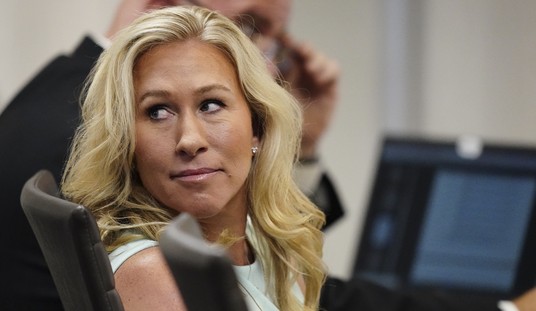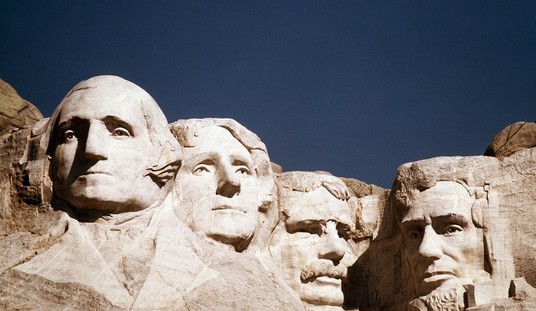Sen. Rand Paul (R-KY) is the latest Republican to discover hard truths are unacceptable and quite possibly bigoted if conservatives acknowledge them.
On Friday, Politico noted that Paul’s response to the explosion of violence in Baltimore this week was “notably off-key.” But the candid comments that landed Paul in hot water might be perfectly acceptable and even commendable if they were uttered by anyone other than a Republican presidential candidate.
“I came through the train on Baltimore last night,” Paul told host Laura Ingraham. “I’m glad the train didn’t stop.”
The senator’s breezy response came just before he blamed the violent uprising there on “the breakdown of the family structure, the lack of fathers, the lack of sort of a moral code in our society.” He also expressed his sympathy for “the plight of police,” all without speaking to the circumstances surrounding the troubling death of Freddie Gray in the custody of Baltimore Police.
Apparently, these remarks sparked a backlash that prompted a member of his campaign team to engage in a full-court press damage control effort.
“We recognize how it may have sounded to some people,” Paul advisor Elroy Sailor told Politico. “We’re listening and learning every day and we learned from this. We’re also leading this conversation.”
Surely, Paul’s desire to avoid subjecting himself to the whims of a riotous mob is justifiable, although perhaps a bit atonal from a national political figure. While his offhanded remark about not wanting to stop in Baltimore as the streets were alive with violence are understandable, it would have been more artful to avoid confessing his hope to avoid an American city in turmoil altogether.
That said, Paul’s comments about the nature of this spate of violence are perfectly well-founded. The Kentucky senator apparently offended sensibilities by noting that the unsupervised youths who took to the streets over the last week attacking civilians, mobbing police, and setting structures on fire lacked sufficient parental guidance. Only an empirically supported and unimpeachable comment like that could inspire such outrage. The truth hurts, although it didn’t hurt as much when it was then candidate Barack Obama lamenting the breakdown of the African-American family.
“Too many fathers are M.I.A, too many fathers are AWOL, missing from too many lives and too many homes,” the president said in 2008. “They have abandoned their responsibilities, acting like boys instead of men. And the foundations of our families are weaker because of it.” The president made this comment after revealing his intention to co-sponsor a bill with former Sen. Evan Bayh that would address the “national epidemic of absentee fathers.”
The president has since shifted his focus away from the value of the family unit as a means of ensuring America’s social fabric remains strong. Instead, he has embraced the issues of systemic racism and income inequality. Maybe Obama’s evolving priorities are simply an acknowledgment that the base of his party has grown more radical over his tenure in office. “Or maybe Obama simply doesn’t believe there is anything government can do to reverse the decline of the two-parent family where it’s struggling the most,” James Pethokoukis speculated.
Whatever the case, Paul’s comments are utterly defensible. Moreover, he shouldn’t be apologizing for his record on minority issues. Paul has fought hard to establish himself as the Republican candidate most concerned with and capable of reaching out to the minority community.
Paul has made a variety of speeches to students at primarily black universities, almost all of which have been mocked and pilloried by the press. When Paul spoke to students at the historically African-American Howard University in 2013, he was scoffed at by MSNBC’s Rachel Maddow for failing to address his past comments expressing concerns over the anti-federalism of the 1964 Civil Rights Act. Other reports suggested that Paul was routinely hectored and ridiculed by the attending students, but anyone who watched the speech didn’t come away with that impression. Paul’s audience was not only polite and respectful, but engaged. More than a few justifiably rolled their eyes when Paul asked if they knew the NAACP was founded by a Republican, but they did not jeer at that presumption of ignorance.
Moreover, Paul has positioned himself as the preeminent Republican in the 2016 field in favor of dramatic criminal justice reforms – a cause that is gradually being embraced by nearly all the GOP’s presidential aspirants. “Those of us who have jobs and have lived fairly privileged lives don’t know what it’s like to pay fines and penalties on top of other fines, and how someone’s life can spiral out of control,” Paul told a group of primarily black Bowie State College earlier this year. “As I’ve learned more about criminal justice system, I’ve come to believe it’s something that’s going to keep the two Americas separate.”
To suggest as some have that Paul is somehow soft on criminal justice reforms merely because he acknowledges that a variety of factors led to the violence in Baltimore, is deeply unfair.
What happened in Baltimore is not what happened in Ferguson, and Paul is within the bounds of reason to note the distinctions. They are distinctions that all but the members of the press, sequestered as they are in ideologically homogenous newsrooms, can see. There may be no better illustration of the dishonestly of the news media’s efforts to rationalize the violence in Baltimore than the myopic, circular debate in the press over whether it is insensitive to call thugs “thugs.”
This was the word that Baltimore Mayor Stephanie Rawlings-Blake used to describe the agitators who took to the streets to steal cars, erect fiery barricades at intersections, burn down businesses, and cut fire hoses. This was the word used by President Obama to describe the mobs of young Baltimore residents who destroyed police cars, attacked officers with improvised explosive devices, and beat journalists. And yet, for nearly a week, cable news outlets have been involved in a heated, onanistic conversation about whether the baggage associated with the word “thug” unduly tars the reputations of the members of Baltimore’s reptilian mob.
If Paul’s apology was directed toward the citizens of Baltimore who felt understandably jilted by his comment about not wanting to stop in the troubled city, it’s a justified and smart backtracking. What’s more, it’s smart politics. If he was, however, talking to the press, he shouldn’t have bothered. They aren’t listening to reason.







Join the conversation as a VIP Member